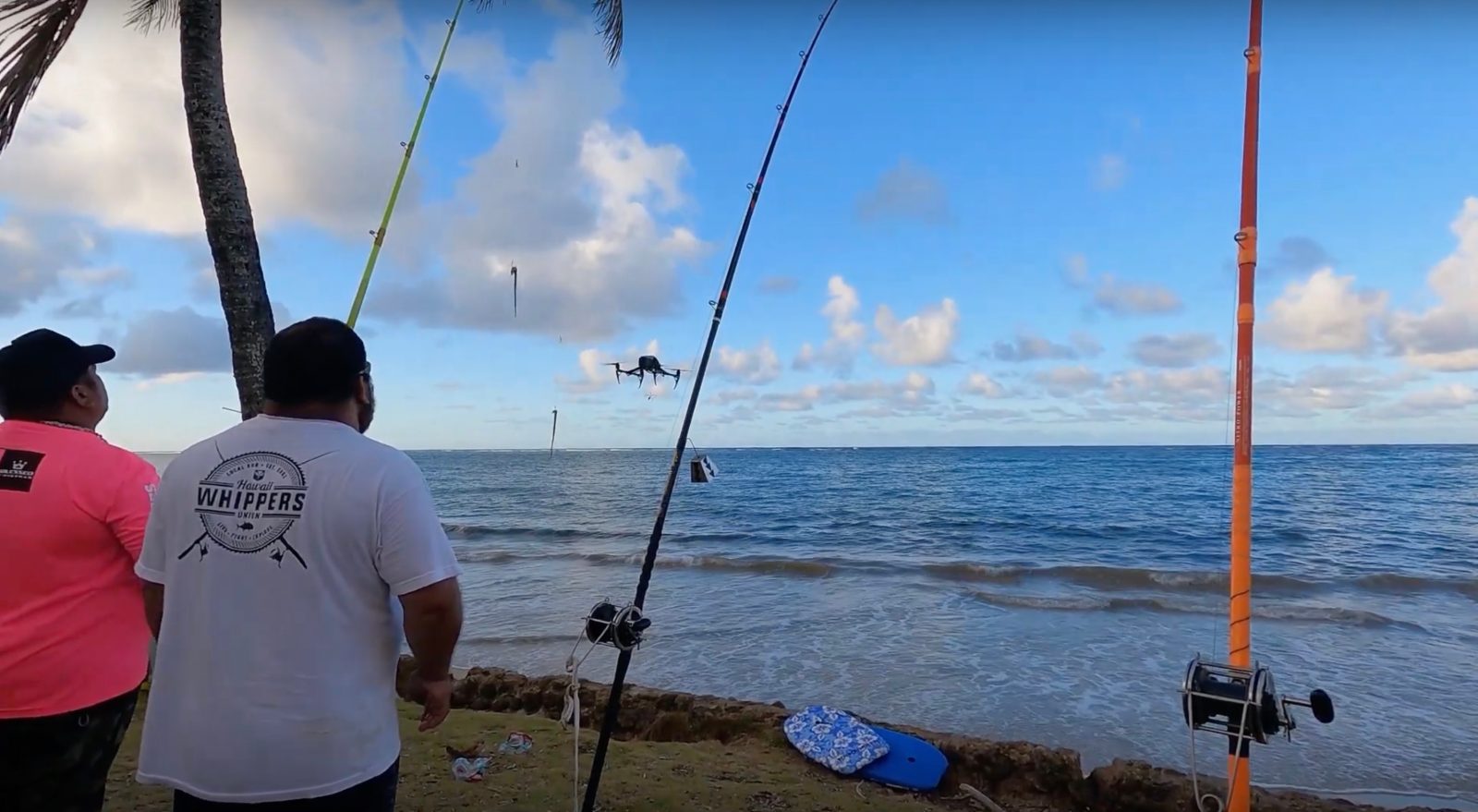
The state legislature of Hawai‘i is moving closer to passing a law that would prohibit the use of drones for fishing, which supporters call both unfair and a threat to traditional methods of manually casting from the shore relying on physical strength and technique.
The proposed legislation, SB2065 SD2 HD2, “(p)rohibits the possession or use of unmanned aerial vehicles on, in, or near state marine waters for purposes of fishing, unless permitted by the department of land and natural resources.” Its measures were introduced in January, and after considerable debate were finally passed by the lower house earlier this month. The state senate is currently hearing testimony on the bill from interested parties, and also appears likely to approve it.
May 10 Update
As expected, legislators in Hawai’i voted final passage of the draft law banning drone fishing in the state after several days of efforts to push for a final reading and a ballot on the measure.
Local media say opponents of the bill are placing their hope in Governor David Ige granting their appeals to veto it, rather than sign it into law as anticipated.
At issue is the limited yet not insignificant number of people who use drones to snag fish off the shores of Hawai‘i. The practice involves attaching the line, hook, and bait to a specialized delivery device beneath the UAV, and piloting the craft well beyond the surf breaks that dissuade larger game like tuna from coming closer in
Once out – usually hundreds of yards – the line is released by remote, and anglers simply wait for a strike to reel in their catch. Some continue hovering the drone above the drop zone to be able to capture footage as they crank the fighting fish in.
Supporters of the bill argue use of drones for both professional and amateur fishing leave people relying on the usual method of manual casting at a major disadvantage – especially with the effects of surging tourism, pollution, and climate change reducing presence of marine life closer to shore. Hawai‘i’s Department of Land and Natural Resources (DLNR), which supports the measures, also argues deployment of UAV in the sport are creating problems for humans and sea creatures farther out.
“This has resulted in increased interactions with protected species, such as monk seals and turtles,” DNLR officials argued in a statement in favor of the bill. “This also impacts human health and safety – people have reported becoming caught by lines in places shore casting cannot reach, boaters have reported concerns with braided line becoming entangled in propellers. Similarly, the use of drones has vastly expanded the footprint of fishing-related tackle becoming debris in the ocean.”
Opponents contend many of those complaints are either exaggerated or wrong, and that any interaction people or animals may have with drone-dropped fishing lines are minimal in consequence compared to those being trolled by boats. They also contend the bill’s assumption that use of UAVs in the activity will considerably increase with time is misguided.
“Drones are costly and the average angler will not spend the hundreds and thousands for a drone,” argued Albert Nakaji, self-described “sustenance fisherman” in testimony submitted to legislators. “Anytime a new technology is introduced, opposition will be raised against it. Even now, there is opposition to the use of diving and spearfishing, netting of any kind, electric reels, long lines, etc., even when these have been used for decades and centuries. Often the objection is that these technologies are ‘unethical, unsportsmanlike.’”
Should Hawai‘i adopt the legal ban on drones in fishing, it would become an outlier, with all other US states permitting the aerial technique so long as it’s not extended to hauling catch in as well. That general authorization of anglers gaining an advantage in their activity from UAVS contrasts sharply with their use by hunters, who are prohibited by law from doing so in 45 states.
FTC: We use income earning auto affiliate links. More.



Comments